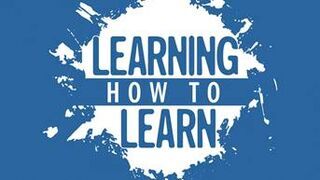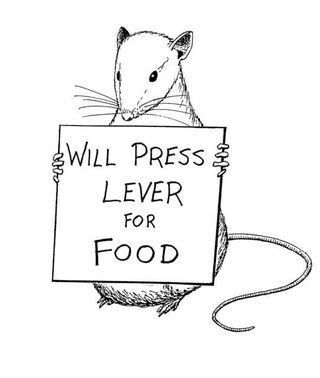Psychology
DIY Learning Is the Windsock of Personal Transformation
Learning psychology provides the tools of personal growth.
Posted June 12, 2021 Reviewed by Hara Estroff Marano
Key points
- Learning Psychology is a distinct field needing increased up-to-date research, refinement, and attention.
- Do-it-yourself learning is best when the learner understands the tools of learning.
- Covid-19 has thrust DIY learning to the forefront in education.
- Learning psychology provides the tools for personal transformation.

Learning is often defined as a measurable change in behavior occurring as the result of an experience. Learning occurs from continuous experiences throughout one’s lifespan. There is extensive research and literature about educational psychology, but there has been more limited specific focus on learning psychology as a defined field of study.
Education Psychology is about teaching and fostering learning in others. Learning Psychology is about one’s own personal growth. DIY learning as a specific area within learning psychology is based on the importance of an individual learning how to learn. This may sound obvious, but it is not. Learning how to learn is quite sophisticated.
Learning became a major focus of study in psychology during the early part of the twentieth century, when the field of behaviorism emerged as a major school of thought. Behaviorism focuses on the idea that all behaviors are learned through interaction with the environment.
Today, learning is studied as part of cognitive, educational, social, and developmental psychology. Learning research is divided into specific topics because the process of learning is not always the same. Learning occurs in a wide variety of ways. Many theories in psychology encompass specific concepts in learning psychology. My intent in this article is to focus specifically on learning psychology with an emphasis on DIY learning—because learning how to learn is substantively and fundamentally important for personal development.
Classical Conditioning. Russian physiologist Ivan Pavlov,called attention to classical conditioning through his experiments on the digestive systems of dogs. Pavlov reported that dogs naturally salivate at the sight of food. He found that, through repetition, dogs begin to salivate whenever they see food, even when they see the provider in a certain setting.
Pavlov’s experiments also included pairing the sight of food being presented with the sound of a bell tone. After multiple pairings, the dogs eventually began to salivate at the sound of the bell alone, in anticipation of receiving food. His conclusion was that learning through classical conditioning occurs from the formation of associations. This early foray into learning psychology evolved into stimulus-response psychology as one facet of learning psychology.

Operant Conditioning. Controversial behaviorist B.F. Skinner suggested that reinforcements are also valuable in facilitating learning. When a reinforcement immediately follows a behavior, it can either increase or decrease the likelihood that the behavior will be repeated in the future. This process is defined as operant conditioning.
Operant conditioning is supported by the theories of learning through practice. Practice leads to embedded learned experiences. It is important to be aware that practice can also produce a negative result. A practiced flaw results in a flawed learning outcome. Therefore, it is important to recognize that only correct practice reinforces and leads to optimal learning.
Practice does not always make perfect. Perfect practice, therefore, is especially important for positive learning outcomes. Only perfect practice leads to perfect outcomes.
Observation. Observational learning occurs by observing examples of actions and consequences of the behavior of others or by the consequences of one’s own behaviors. Epiphany-like insights may seem to occur spontaneously or as the result of deep reflection. Observation fosters psychovisualization that has proven to significantly help reinforce learning.
Learning is not a one-dimensional process. Because learning occurs in many different ways, there are a wide variety of factors that can influence how and what you learn. Learning how to learn is a skill that requires insight, awareness, attention, and commitment. Transformation through DIY learning is enhanced when the learner’s approach is grounded in sound learning psychology.
Yearning precipitates motivated learning. Lifestyle and leadership coach Judith Wright has developed Yearning Psychology to explain and facilitate personal learning. Anxiety, motivation, and desire are the ingredients of yearning as a source of energy that fuels the motivation and desire to learn.

Additional elements that affect learning include attention, emotion, empathy, psychovisualization, color, sound, and memory. Learning is also a function of memory, and there are many techniques that may be used to enhance memory. Understanding that depression is often about the past and that yearning is about the future can help chart the way to self-fulfillment. Itemize and add this list of concepts, theories and practices together and you have a framework for learning psychology.
Conclusions: Learning how to learn represents the true self-actualization of learning psychology. Teaching is about doing something to and with others. Learning involves a person doing something for him or herself. Educational psychology is a well-developed discipline with many areas of specialty in how we guide and teach others. Learning how to learn is a key to personal development and a discipline to be learned.
Yearning to learn energizes learning for personal development and transformation. Research validates that learning how to learn enhances personal development. Learning psychology embraces theories that enable the personal realization of one’s human potential. Continuing advances in psychology, including neuroscience, increased brain data, AI, augmented reality, and much more, argue for wider recognition of learning psychology as a specific field.
Learning psychology is the windsock of personal transformation. The objective of this article is to encourage more research and attention, leading to a greater understanding of learning psychology. Learning psychology is a field whose time is now!
Luskin Learning Psychology Series No. 58
Special thanks. Toni Luskin, Ph.D. for editorial and publishing assistance.
References
Wright, Robert, Wright, Judith, Transformed! The Science of Spectacular Living, Chicago, December 2012
Luskin, B., The Neuropsychology of Media and Learning Psychology Explained, Psychology Today, Luskin Learning Psychology Series No. 52, June 29, 2020
Skinner, B.F. (1938). The behavior of organisms: an experimental analysis. Oxford, England: Appleton-Century. Skinner, B.F. (1938). The behavior of organisms: an experimental analysis. Oxford, England: Appleton-Century. Skinner, B.F. (1938).
Pavlov, I. P. (1927). Conditioned reflexes: an investigation of the physiological activity of the cerebral cortex. Oxford University Press.




